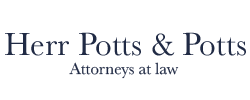If you have received an inheritance from one of your family members, you may be worried about the possibility of paying a tax on that inheritance. The inheritance tax does not apply to individual retirement accounts (IRAs) under certain circumstances. If you or a family member is concerned about Pennsylvania’s inheritance tax on IRAs, you should speak with an experienced Pennsylvania tax lawyer. At Herr Potts and Potts, our experienced lawyers are here to provide you with representation that will be tailored to your unique legal needs. The intricacies of tax law are difficult to navigate through, but we are here to help guide you through your tax matters. Our lawyers are here to explain when heirs must pay inheritance tax in Pennsylvania.
When Do Heirs Pay Inheritance Tax on IRAs in Pennsylvania?
IRAs are designed to help individuals save for retirement on a tax-deferred or tax-free basis. The owner of an IRA can designate family members or other individuals as beneficiaries. Whether an inherited IRA is subject to Pennsylvania’s inheritance tax depends on multiple factors, including the age of the original IRA owner at the time of death and the relationship of the beneficiary to the deceased.
The main types of IRAs include:
Traditional IRA – Contributions to a Traditional IRA are typically tax-deductible, and earnings grow on a tax-deferred basis. Withdrawals during retirement are subject to income tax. The maximum contribution limit for 2025 is $7,000 per year, with an additional $1,000 catch-up contribution for those 50 and older.
Roth IRA – Roth IRAs are funded with post-tax dollars, meaning withdrawals in retirement are generally tax-free. Contribution limits for 2025 remain the same as Traditional IRAs ($7,000, or $8,000 for those 50 and older).
Rollover IRA – A Rollover IRA allows individuals to transfer funds from an employer-sponsored retirement plan, such as a 401(k) or 403(b), without incurring penalties, provided the transfer follows IRS rules.
Under Pennsylvania law, the taxation of an inherited IRA depends on the age of the deceased at the time of death.
If the original IRA owner passes away before reaching the age of 59 ½, the IRA is generally exempt from Pennsylvania’s inheritance tax. However, if the deceased was 59 ½ or older, the full value of the IRA is subject to inheritance tax.
Pennsylvania Inheritance Tax Rates for IRAs (2025)
The inheritance tax rate in Pennsylvania is determined by the beneficiary’s relationship to the deceased. As of 2025, the tax rates are as follows:
0% – Surviving spouses and charitable organizations
4.5% – Transfers to direct descendants (children and grandchildren)
12% – Transfers to siblings
15% – Transfers to non-relatives
Some beneficiaries are exempt from inheritance tax. For instance, minor children under the age of 21 who inherit an IRA are exempt. Additionally, Pennsylvania eliminated the “widow’s tax,” meaning surviving spouses do not have to pay inheritance tax on an IRA or other inherited assets.
Taxation of Inherited IRAs for Non-Spousal Beneficiaries
For children, siblings, or unrelated beneficiaries inheriting an IRA, the Pennsylvania inheritance tax applies to the total value of the IRA. Even if the beneficiary chooses to keep the IRA as a beneficiary IRA instead of withdrawing a lump sum, the tax is still due.
How a Pennsylvania Tax Attorney Can Help
If you are concerned about inheritance tax on an IRA or want to discuss estate planning strategies to minimize taxes for your heirs, a knowledgeable tax attorney can help. At Herr Potts and Potts, our attorneys have decades of experience handling inheritance tax issues and estate planning matters in Pennsylvania. We can guide you through tax-efficient ways to plan for the future and help you navigate the inheritance tax process.
To schedule a confidential consultation, call us at (610) 254-0114 or contact us online.

